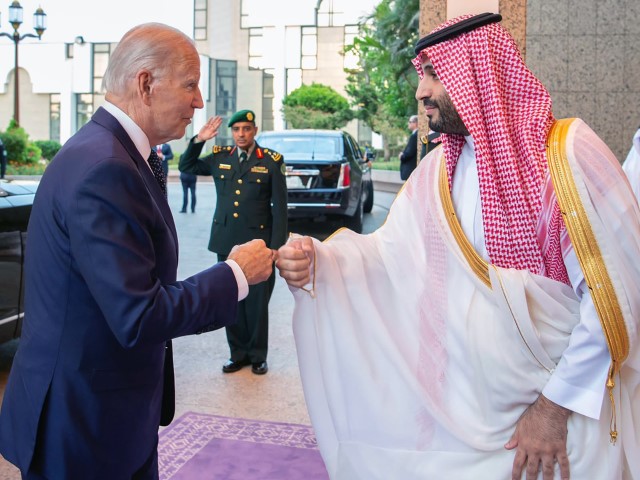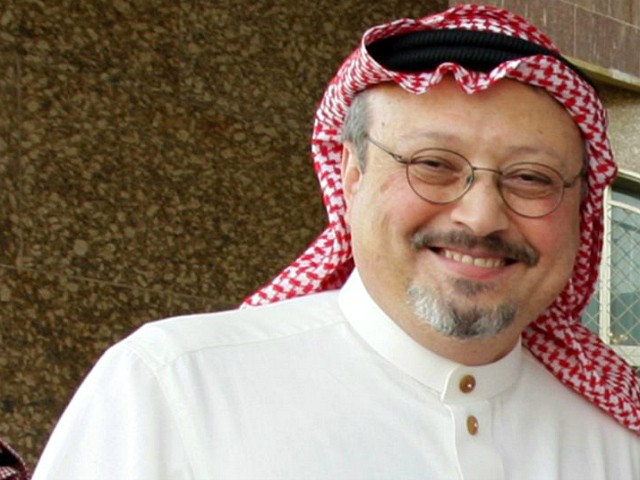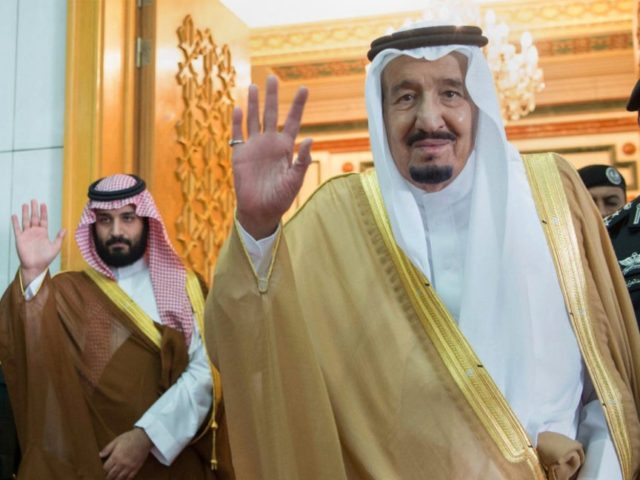A study published this week by two human rights organizations found that executions in Saudi Arabia rose a prodigious 82 percent between 2015, the year King Salman came to power, and 2022.
The groups compared executions by year in that period to those between 2010 to 2014 to make their determination.
The organizations – the European Saudi Organisation for Human Rights and Reprieve, a coalition of attorneys helping the victims of state human rights abuses – also directly accused Crown Prince Mohammed bin Salman of being part of the escalation of the use of capitalism punishment during that time. King Salman elevated Mohammed bin Salman, his son, to the crown prince position in 2017 and appointed him prime minister of the country in 2022. Mohammed bin Salman is widely considered the de facto ruler of his country.
Mohammed bin Salman is the architect of the “Vision 2030” project, an all-government approach to diversifying Saudi Arabia’s revenue away from oil profits and turning the country into a global cultural, sport, economic, and political heavyweight. He has spearheaded efforts that have eliminated some of the country’s most egregious human rights violations, prominently lifting the ban on women driving and legalizing movie theaters, as part of Vision 2030.
“Today, we mark a major step in fulfilling our commitment to improving the lives of all in the Kingdom, a key pillar of Vision 2030,” Saudi Culture Minister Awwad Alawwad said at the time. “Cinema has always played an important role in bringing cultures together and Saudi Arabia is ready to play its part.”
The liberalizing policies have come accompanied by mounting reports of arrests of political dissidents and the continued silencing of women who spent years advocating for some of the reforms the crown prince ultimately took credit for. Saudis who criticize their government can face decades in prison or death if accused of endangering national security or spreading terrorist propaganda.
The ongoing human rights crisis in Saudi Arabia has threatened to stymie the development of “Vision 2030” and compromised political leaders in the free world. Leftist American President Joe Biden faced widespread criticism in 2022 after visiting Saudi Arabia and greeting Mohammed bin Salman with a friendly fist-bump – an image at odds with candidate Joe Biden’s promises to turn the country into a “pariah” after the brutal killing and dismembering of Islamist Washington Post columnist Jamal Khashoggi at a Saudi consulate in 2018.

In this photo released by Saudi Press Agency (SPA), Saudi Crown Prince Mohammed bin Salman, right, greets President Joe Biden, with a fist bump after his arrival in Jeddah, Saudi Arabia, Friday, July 15, 2022 (Saudi Press Agency via AP).
The Biden administration moved to immunize Mohammed bin Salman from lawsuits related to the 2022 Khashoggi killing.

An undated recent file picture shows prominent Saudi journalist Jamal Khashoggi who resigned suddenly on May 16, 2010, in Riyadh from the helm of Al-Watan days after the newspaper published a controversial column criticizing Salafism. Al-Watan announced that Khashoggi, 52, was stepping down as editor-in-chief ‘to focus on his personal projects,’ in a statement published on its website and in its Sunday edition (AFP/Getty Images).
“The annual rate of executions has almost doubled since King Salman and Mohammed bin Salman came to power in 2015,” the two organizations denounced in this week’s report, titled “Bloodshed and Lies: The Kingdom of Executions in the Era of Mohammed bin Salman.”
“From 2010-2014 there was an average of 70.8 executions per year. From 2015-2022 there was an average of 129.5 executions per year – a rise of 82%,” the groups noted. “The six bloodiest years of executions in Saudi Arabia’s recent history have all occurred under the leadership of Mohammed bin Salman and King Salman (2015, 2016, 2017, 2018, 2019 and 2022).”
Those executed were found guilty of a wide variety of crimes, from those that many other states would consider candidates for capital punishment contenders – murder, sexual violence, and organized criminal activity – in addition to low-level drug crimes, drug trafficking, sedition, and “witchcraft and sorcery.”
“Every data point in this report is a human life taken. The Saudi death penalty machine chews up children, protesters, vulnerable women in domestic service, unwitting drug mules and people whose only ‘crime’ was owning banned books or speaking to foreign journalists,” the director of Reprieve, Maya Foa, said in a statement following the report’s publication. “And all while MBS lies to the world that he has reformed the system to reduce the number of people executed.”
The report highlights in particular the use of capital punishment against children, which the NGOs confirmed to be ongoing. At least 15 of those were documented to have been executed since 2013. One of those executed was identified as 14-year-old Abdullah al-Howaiti, who, Reprieve noted, was tortured and “confessed” to a crime without evidence. Reprieve’s attorney system represented al-Howaiti before his killing.
The rising number of executions appears to be arriving alongside an increase in large-scale capital punishment events. In March, Human Rights Watch highlighted the mass execution in the country of 81 men, about half of which were Shia Muslims. The Saudi government identified most of the men as alleged associates of terrorist organizations and individuals seeking “to destabilize security, sow discord and unrest, and cause violence and chaos.”
Mohammed bin Salman has not indicated any interest in public in scaling down Saudi Arabia’s executions. In a 2018 interview with Time magazine, the crown prince responded to a question about executing dissidents by comparing them to jihadists.
“We used to call them — in the ’90s, they used to call Osama bin Laden the same thing [a political activist] and he turned out to be the biggest danger for the whole world,” Mohammed bin Salman said. “And they call them today the same thing, and we call them the Muslim Brotherhood Party or the Saruris Party or people that are linked to agencies and working for different countries. And in each case, when the investigation ends, we announce the details publicly.”

COMMENTS
Please let us know if you're having issues with commenting.